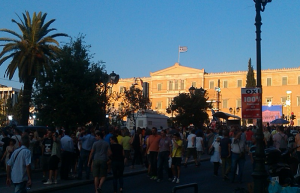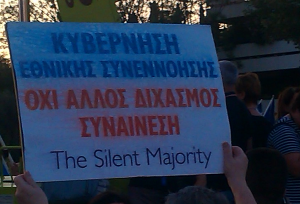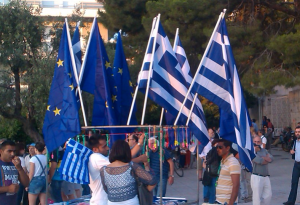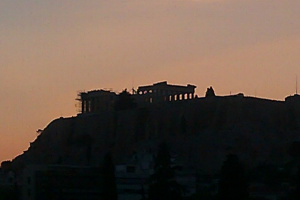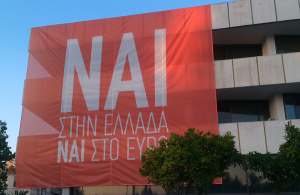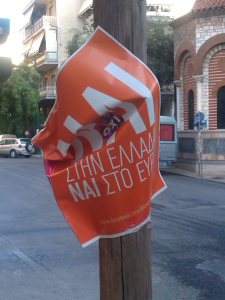Very late on Saturday, we came back from a two week holiday, to a country and a house which I had missed and a fridge which had missed me filling it. Having lived in England for years, I’ve gotten used to the fact that most shops are open on Sunday. And even in countries where as a rule they aren’t, there are at least some places selling fresh food, typically in tourist areas or transport hubs.
Not so in Greece. While some corner shops are open, there isn’t a supermarket in all of Greater Athens (population: 3.7m) open on a Sunday. Such is the law, a law that has long been defended by many on the political right (mostly for religious reasons) and on the left (mostly for anti-capitalist reasons). When “the institutions” are accused of micromanaging the Greek economy, it’s worth keeping in mind that in many cases, they actually ask for micromanagement to be ended.
I had decided to continue writing about Greece, even as the country ceased to be the main item in news bulletins around the world. But then, while I was away, things got interesting once again: prime minster Alexis Tsipras handed in his resignation and new elections will be held next month.
For the very short term, this isn’t good news: the last thing a country still affected by capital controls and a crumbling economy needs is instability. For the slightly longer term, it is probably a good thing though: while the government easily got some tough measures through parliament, it had to rely on the support of the three sensible opposition parties, as a large number SYRIZA members voted against.
Those people have now left SYRIZA to form a the new Popular Unity (Laïki Enotita), headed by former energy minister Panagiotis Lafazanis. He and his party believe that No in the referendum should mean No and that the country should leave the euro and go back to the drachma. Something Lafazanis allegedly wanted (and for all I know still wants) to fund by robbing the Greek Mint and using the euros stored there to pay civil servants’ salaries.
Lafazanis and his party are unlikely going to be a significant factor in the elections though. The far most likely outcome is that SYRIZA yet again becomes the biggest party and that Tsipras returns as prime minister and is able to implement those measures he agreed to at the very last minute last month. But then, this is Greece. The ancient Greeks didn’t just invent democracy. They invented drama too.
Category: greece
If you’ve recently seen a TV news item with a reporter discussing the state of Greece to the background of the parliament building, they most likely were broadcasting from Athens Plaza hotel, one of the three five-star hotels on Syntagma Square and the one whose balconies give the best view of the parliament. In recent weeks, whenever I was on Syntagma Square, I could always spot TV cameras on at least a dozen balconies.
We were at Syntagma Square yesterday and all the cameras seemed have gone. Greece has disappeared from foreign papers’ front pages and from TV news bulletins. Indeed, Greece is slowly returning back to normal and capital controls are gradually being lifted, though the emphasis here is on ‘slowly’ and ‘gradually’.
It is a telling sign that today’s biggest story is that of the leaked plan from former finance minister Yanis Varoufakis in case the country was forced to leave the euro, a plan which appears to have involved hacking into the systems of the Greek tax collecting agency. While the story is huge, it doesn’t have any direct impact on people’s lives or on the political situation.
And while many Greeks have left or are leaving for holiday — it is not uncommon for Greek businesses to close for the whole of August — the government has pushed some legislation through parliament, which was a precondition set by other eurozone counties to start negotiations on a third bailout package. A significant minority of MPs from the government parties voted against the proposals, which wouldn’t have passed if it wasn’t for the support of the three moderate opposition parties (the neo-Nazis and communists voted against, but people are neither surprised by this, nor are they taking this very seriously). More worryingly, the government hasn’t exactly been cheering the legislation it asked parliament to pass, so that we now have a government which has some interest in the situation of the country worsening. Thankfully, a significant majority of Greeks continue to say that the last-minute deal was better than any of the alternatives.
The past few weeks, I have often found myself thinking of a quote from Guiseppe Tomasi di Lampedusa’s The Leopard, a classic Italian novel: “everything needs to change, so everything can stay the same”.
A lot of things will change in Greece. Change is never easy. But it will be for the better.
Athens to the dogs
When I first visited Athens ten years ago, I was struck by the city’s many stray dogs. Though far outnumbered by stray cats, the dogs are hard to miss, and are often found crossing streets with pedestrians or sleeping in parks or on pavements.
As I walked through central Athens today, I saw several of them — all asleep — and realised I had missed them during the past weeks, when the central square was often packed with protesters. It was a reassuring sign that things may slowly be returning back to normal, just like the kids breakdancing on Syntagma Square were such a sign. I would almost be willing to believe that tomorrow’s metro strike is such a sign too.
True, there were a few fringe groups on Syntagma square protesting against Monday’s deal, but then Greece has always had many fringe groups (in January’s elections, at least half a dozen communist parties took part). Perhaps this too is a sign of things returning back to normal.

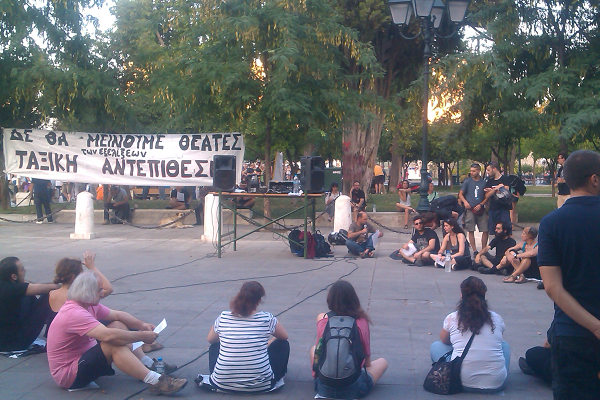
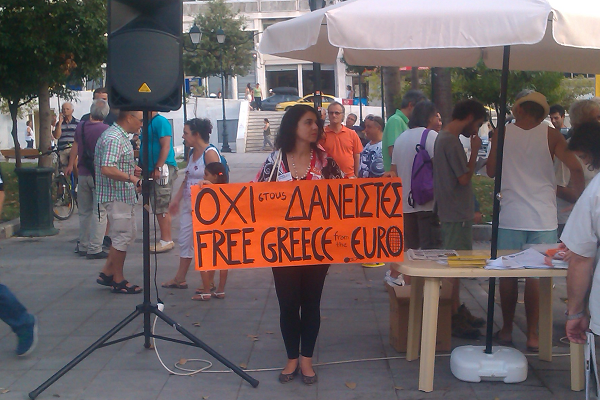
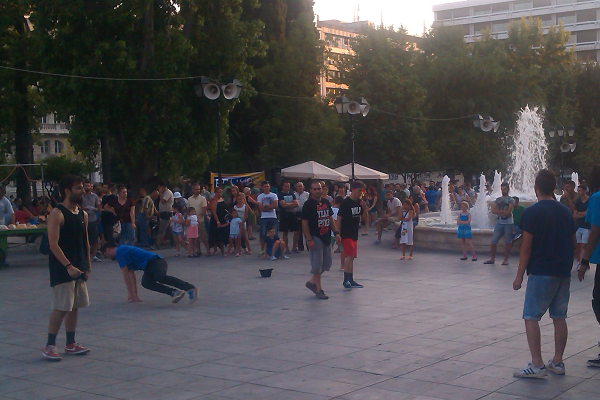
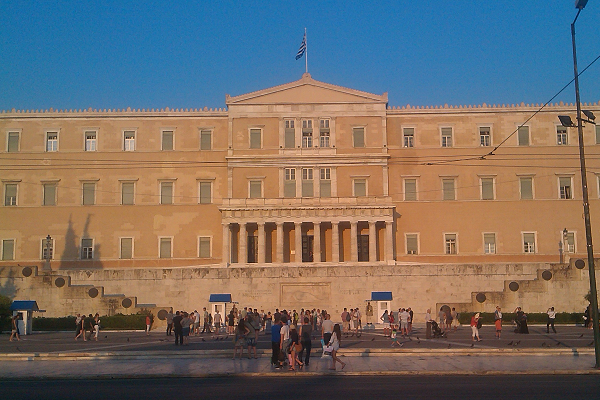
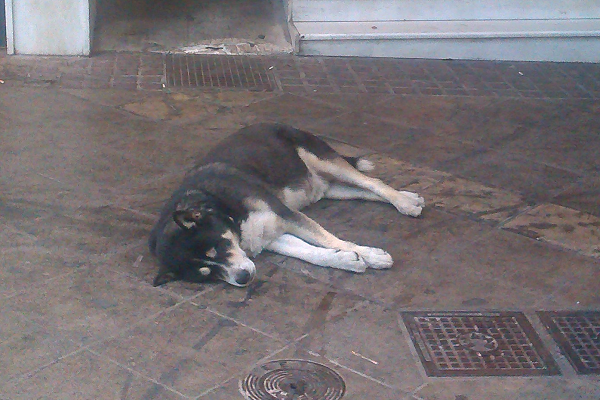
Groptimism
I consider myself an optimist. It hasn’t always been easy watching the Greek crisis unfold though. Not only were there many times during which it did take some extra effort to believe things would be alright in the end, there were also those commentators from either side of the political spectrum (and frustratingly often from outside Greece and with little understanding of the country) who knew how much better a Grexit and a proverbial middle finger to “the institutions” would be. If only they knew.
This morning, when I woke up from a rather short night’s sleep, there still wasn’t a deal. There was one a few hours later. Critics were quick to point out that the measures the Greek government has agreed to are pretty tough, which they are, while others made the point that Greece won’t ever be able to pay off all of its debts, which is also true. (I am actually in favour of debt restructuring, but at this point of time, with Greece seeking new loans, it would have made little to no difference.)
But the alternative would have been so much worse. For Europe, for the other euro countries but especially so for Greece. And politics is often about finding the miserable little compromise that hurts everyone least.
There are actually quite a few things in the deal that will be positive for Greece. Some of these are measures that will improve the country’s economic performance in the long run, but there is also an explicit mention of investments. One is right to see the many unemployed youth as a big problem for the country. But they are a huge potential too, which could be unlocked with the right investments.
For now, the banks are still closed though. They will remain so until at least Wednesday. After then capital controls will only gradually be lifted. The next weeks, we will no doubt see many protestors on Syntagma Square who will make it loud and clear that the deal goes against their ideology or their vested interests.
But some light can be seen flickering at the end of the tunnel. Let’s make sure we do get there. And let’s be kind to Mr Tsipras.
Grexit? Graccident? Here’s to Groptimism.
This afternoon, I took the metro to Kolonaki, an upmarket district just north of the center. Public transport is still free, hence there were no queues for the ticket machines, but the ATMs next to them did all have queues. While empty supermarket shelves may not be as prevalent as the media may suggest them to be, ATM queues are a very common sight — with the ATMs in our neighbourhood a notable exception.
In Kolonaki I went to a bookshop where I attended a discussion on the Greek crisis led by two experts: Stathis Kalyvas and Aristos Doxiadis; I am reading a book on Modern Greece by the former.
The discussion was in Greek, which was a bit of a problem as after seven months in Athens, Greek is still all… Well, that indeed. I ended up standing awkwardly near the back, playing with my phone while trying to pick up some names from the conversation: Tsipras of course, and Milosevic, as well as Krugman and Stiglitz, the latter two being economists who have been very vocal about where they think Greece should go next, but who won’t have to live through the mess if things go wrong.
Afterwards, I went to Syntagma Square for yet another pro-Europe demonstration. It was less crowded than those I attended last week and people seemed less passionate too. Chants of “Greece! Europe! Democracy!” quickly died down.
I was tired. Everyone else seemed tired too. Greece is tired. Two weeks of capital controls, much as they have changed the face of Greece surprisingly little, really do hurt.
Next to Syntagma Square, the government, with the explicit support of most of the opposition, was writing proposals that have since been sent to Brussels. There must be a deal on Sunday. There will be a deal.
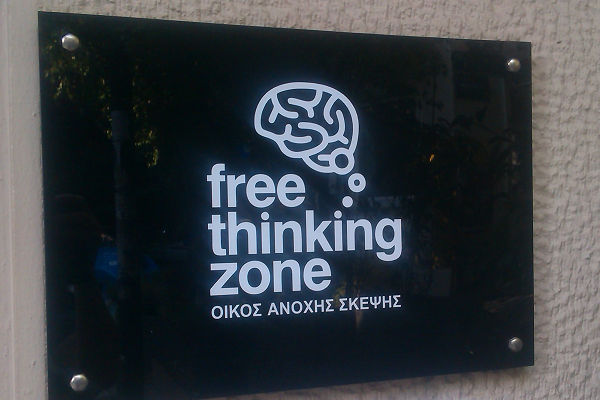
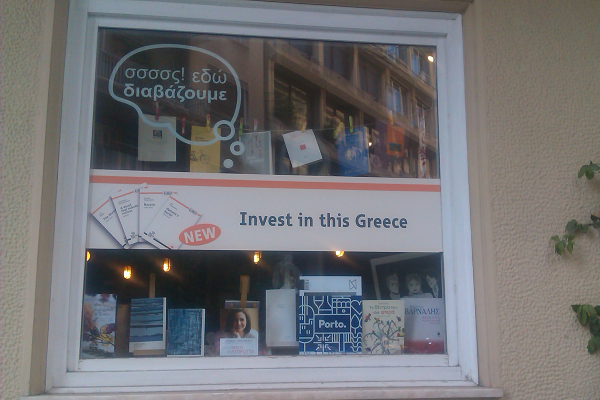
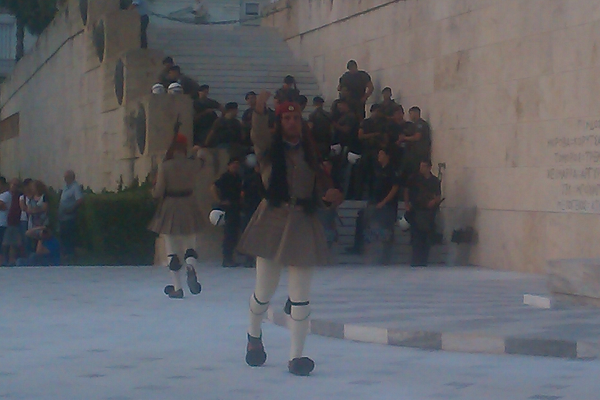
Short-term bank holiday
Today, we had trout for lunch. I felt an odd sense of doing something — spending money in the local economy — when I went to buy it from the supermarket. Actually, supermarkets don’t seem to be hit particularly hard and the images of empty shelves some media have shown are the exception rather than the norm.
It is the many small businesses selling non-essential goods that are hit hardest — and with them of course their owners, employees and families. With the banking system closed and a fear that things, at least when it comes to liquidity, could get worse, people are delaying the purchase of non-essential goods. One bookshop in Athens, one of the few that is still left in the city, reported sales have dropped 90% over the past 10 days.
Tonight it was announced that what has been called the “short-term bank holiday” (euphemism is a Greek invention too) has been extended until at least Monday, what will be its fifteenth working day. Lifting capital controls is much harder than introducing them.
The atmosphere in Greece remains hot — it was 34 degrees — but peaceful. Other cities and countries have responded worse to a loss of one of their sports teams. That too is worth noting.
Still, I remain optimistic that Sunday’s “deal or no deal” day will lead to the former and will at least give the country some breathing space. It desperately needs it.
The day after the night before
The banks in Greece didn’t magically open this morning — I think the only person who genuinely believed that would be the case is now at home, writing a few extra chapters for his book.
They’re likely going to stay closed for most of the rest of the week, which will continue to hurt people and businesses alike. It continues to surprise me how much life in Athens goes on as normal, how many people you still see in shops, in cafes and on the street. Greeks are a tough people.
Apparently, there are more than 500 foreign journalists in Athens right now; many of whom were recording their evening bulletins from Syntagma Square. I hope they’re spending their money generously as this country goes through another few more days of uncertainty.

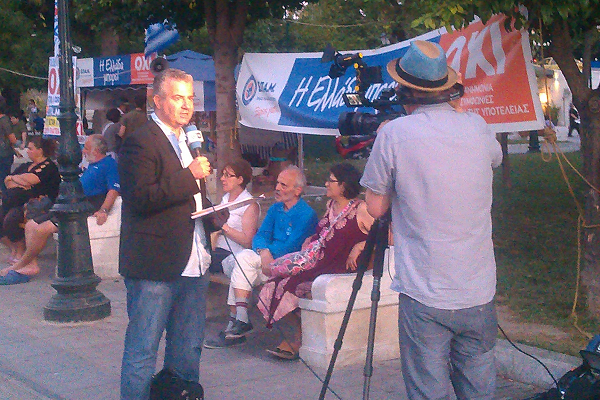

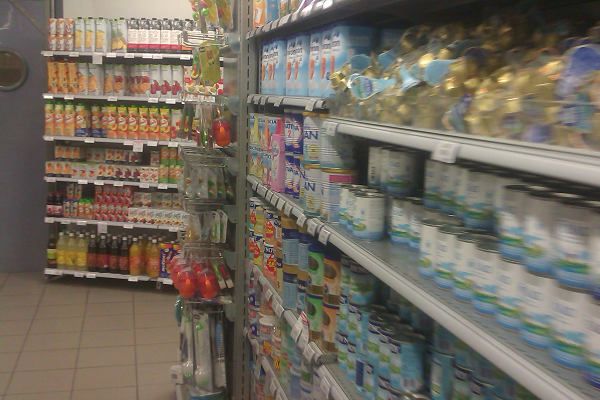
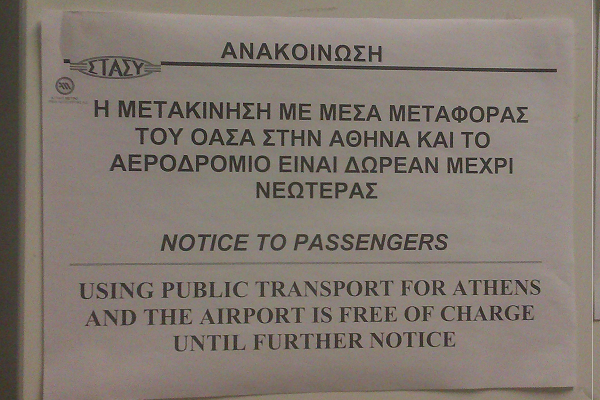
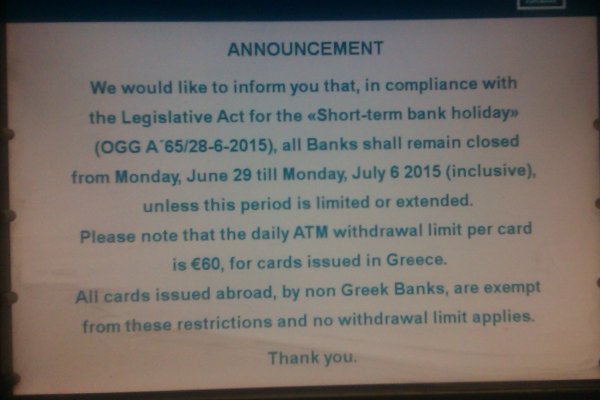
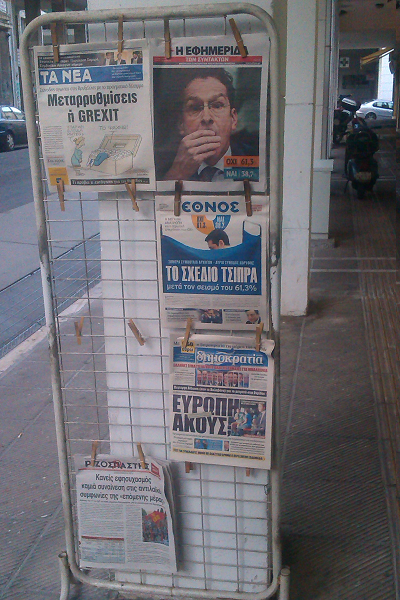
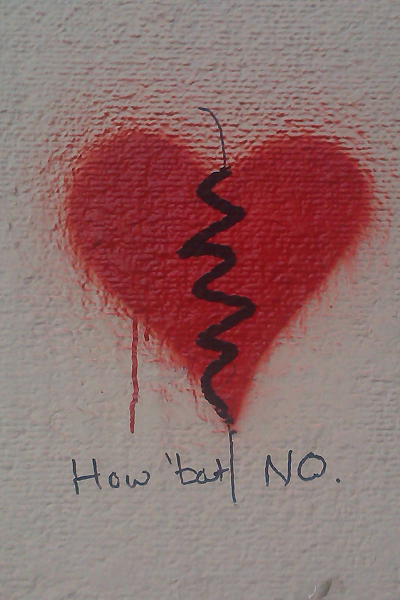
Ode to a Grecian country
When I first came to Greece in the winter of 2005, I did not have any special affinity with the country. I found it an interesting place, like I find any new place I visit interesting. I enjoyed being there and I have certainly enjoyed every visit since. But I don’t think I fell in love with the country.
That didn’t even change when I moved here six months ago, much as I had been looking forward to the move. I have thoroughly enjoyed life in Greece so far, but working from home for a UK company hasn’t made my life significantly different compared to all those years of living in England.
But something changed recently. I’ve read more about Greek politics and Greek society in the past weeks than I had in the years before. I found myself caring about the negotiations and the referendum, about the decisions of the Greek government and those of the institutions, not just because they will affect me, but because they will affect Greece.
It feels that after today, it has become a little bit harder to be optimistic about the near future of the country, but it’s certainly not impossible. And whatever happens, I really want to be here. I love Greece.
We are the 100%
I was at a neighbourhood supermarket today. As I have seen photos of supermarkets with empty shelves on the Internet, it is worth pointing out that this one was fully stocked; although it is also fair to say ours isn’t the neighbourhood where people would be the first to start panic-buying.
As always, there were many offers and they even tried to get me to subscribe to a customer loyalty card scheme. In many ways, even after the banking system has been closed for almost a week, life in Greece still continues to go on as normal.
The big question remains what will happen on Monday morning, when 45% of the country finds out that 55% has signed up for some tough measures that will affect everyone; or, when 45% finds out that 55% has put the country on a path that may lead to an exit from the euro zone — and possibly a much poorer standard of living.
And that’s what worries me most right now. There is a reason many thinkers (most notably that namesake of the current Greek prime minister Alexis de Tocqueville) have warned against the tyranny of the majority. Keeping the country united is going to be the biggest challenge for the foreseeable future. The good thing is that everything else will be easy compared to that.
Here’s to optimism.
Alle Menschen werden Brüder
I had tears in my eyes as I walked away from Syntagma Square tonight. It wasn’t because of the big No-rally that was going on there, nor was it because someone from Spanish Podemos had just been speaking. It only slowly dawned on me that it had been teargas. It seemed to affect me more than it did others around me, but thankfully the pain didn’t last long.
Oddly enough, I hadn’t seen any riots, though I later learned there had been a few. There was quite a bit of riot police surrounding both demonstrations tonight, but they looked bored and uninterested as Greek riot police tends to do.
As I walked towards the ‘Kallimármaro‘ (the stadium used for the 1896 Olympics), ‘ΟΧΙ’ posters along the roads gradually made way for those saying ‘ΝΑΙ’. Two American tourists concluded that ‘ΝΑΙ’ must mean ‘no’.
When it comes to locations for your rally, the Kallimármaro is hard to beat — even if it’s slightly less central than Syntagma. Chants of ‘Greece! Europe! Democracy!’ were chanted and the atmosphere of the Yes-rally was very friendly and even felt quite optimistic.
As I walked away after about half an hour of immersing myself in the crowd, they played Beethoven’s ‘Ode to Joy’ — the European anthem — through the speakers. Most people blew whistles in support. Now I had tears in my eyes again.
The European family has had better moments, but it has also seen much worse. It is good to remember that. We’ll be alright.
Alle Menschen werden Brüder. All men become brothers. Όλοι οι άνθρωποι είναι αδέλφια.

